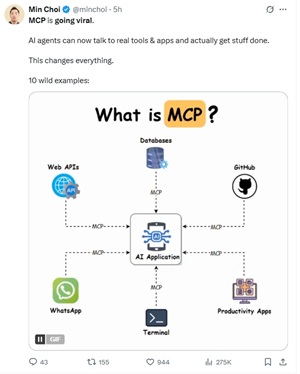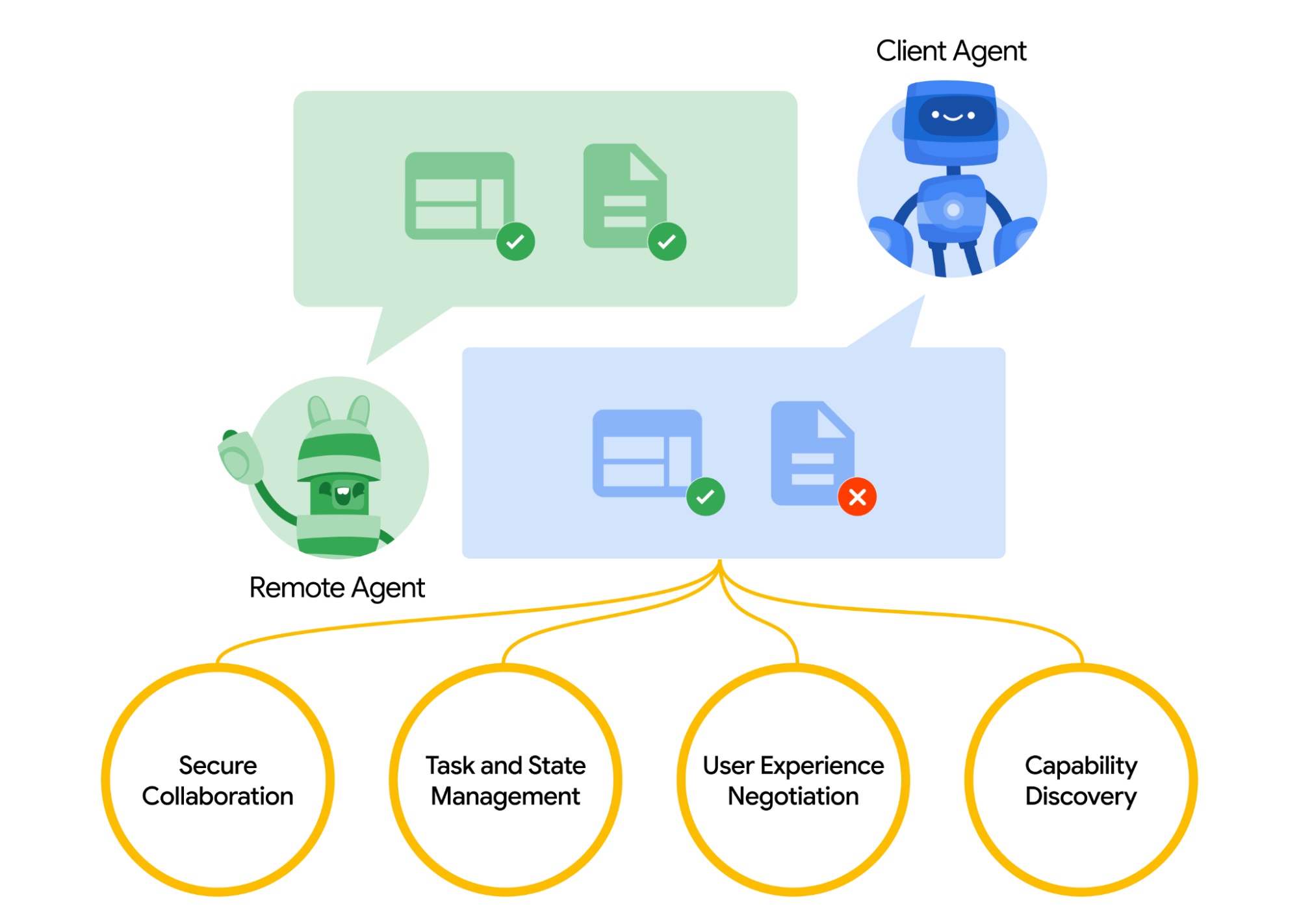News
Protocols for Agentic AI: Google's New A2A Joins Viral MCP
Since its launch in November 2024, the Model Context Protocol (MCP) from Anthropic has gone viral, generating buzz as a simple, standardized way to connect language models with tools and data. Now, Google has introduced another protocol to further agentic AI, called Agent-to-Agent (A2A), which is designed to facilitate communication between different AI agents.
So, the MCP can be seen as a plugin system for agents, making one AI agent smart by giving it tools, context, and structured access to data. The A2A protocol can be viewed as a networking layer for agents, helping them get smarter via collaboration by giving them a shared language and secure channel to talk to one another.
As noted, the traction gained by the MCP has been impressive. For example, it figures prominently in the latest update to Microsoft's Visual Studio Code editor, which does agentic AI with the GitHub Copilot ecosystem (see "VS Code v1.99 Is All About Copilot Chat AI, Including Agent Mode"). And just last week, sister publication AWS Insider reported "AWS Embraces Model Context Protocol for Agentic AI Development."
The MCP also seen significant adoption and is being discussed in tech-oriented social media and other sites, blog posts, articles and podcasts. For a recent example of that, here's a post from today:
 [Click on image for larger view.] 'MCP Is Going Viral' (source: X).
[Click on image for larger view.] 'MCP Is Going Viral' (source: X).
Google has noticed and is perhaps hoping for similar traction, even drawing a comparison between the two protocols in its April 9 introduction.
"A2A is an open protocol that complements Anthropic's Model Context Protocol (MCP), which provides helpful tools and context to agents," Google said in the post published during its Google Cloud Next '25 developer-focused event. "Drawing on Google's internal expertise in scaling agentic systems, we designed the A2A protocol to address the challenges we identified in deploying large-scale, multi-agent systems for our customers. A2A empowers developers to build agents capable of connecting with any other agent built using the protocol and offers users the flexibility to combine agents from various providers. Critically, businesses benefit from a standardized method for managing their agents across diverse platforms and cloud environments. We believe this universal interoperability is essential for fully realizing the potential of collaborative AI agents."
 [Click on image for larger view.] How A2A Works (source: Google).
[Click on image for larger view.] How A2A Works (source: Google).
It appears MCP-like traction might be attained judging from Google's impressive list of partners. More than 50 launch partners are participating, including technology companies like Atlassian, Box, Cohere, Intuit, LangChain, MongoDB, PayPal, Salesforce, SAP, ServiceNow, UKG, and Workday. Also, major consulting and system integration partners include Accenture, BCG, Capgemini, Cognizant, Deloitte, HCLTech, Infosys, KPMG, McKinsey, PwC, TCS, and Wipro.
Google emphasized the openness of the protocol as a standard way for agents to collaborate with one another regardless of the underlying framework or vendor. The company said that while designing the protocol with its partners, it adhered to these five key principles:
- Embrace agentic capabilities: A2A focuses on enabling agents to collaborate in their natural, unstructured modalities, even when they don't share memory, tools and context. We are enabling true multi-agent scenarios without limiting an agent to a “tool.”
- Build on existing standards: The protocol is built on top of existing, popular standards including HTTP, SSE, JSON-RPC, which means it's easier to integrate with existing IT stacks businesses already use daily.
- Secure by default: A2A is designed to support enterprise-grade authentication and authorization, with parity to OpenAPI's authentication schemes at launch.
- Support for long-running tasks: We designed A2A to be flexible and support scenarios where it excels at completing everything from quick tasks to deep research that may take hours and or even days when humans are in the loop. Throughout this process, A2A can provide real-time feedback, notifications, and state updates to its users.
- Modality agnostic: The agentic world isn't limited to just text, which is why we've designed A2A to support various modalities, including audio and video streaming.
Google invited users to learn more with a full specification draft and code samples.
About the Author
David Ramel is an editor and writer at Converge 360.